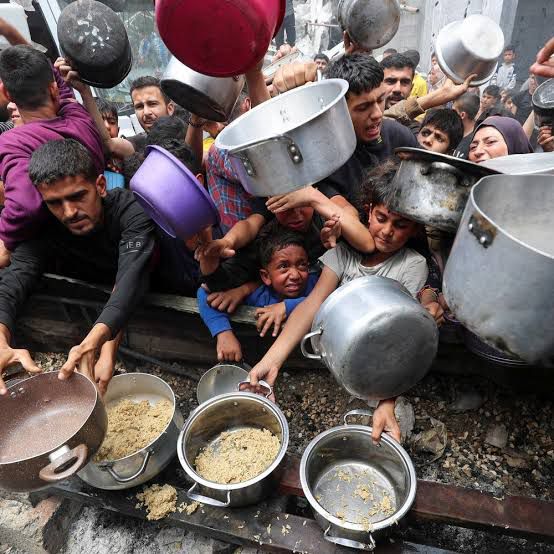Israel began to parachute aid into Gaza on Saturday night in a reversal of its policy in the blockaded strip, as much of the population lies on the brink of famine.
The policy shift was approved by Benjamin Netanyahu’s government and announced by the Israel Defense Forces, which laid out a series of steps it said were “aimed at improving the humanitarian response in the Gaza Strip, and to refute the false claim of deliberate starvation”.
The air drops — the first by Israel itself since the war started in 2023 — included seven pallets of flour, sugar and canned food, the IDF said.

Foreign air forces, including the UK, France, Jordan and the UAE have previously conducted air drops over Gaza during the course of the war, but they are widely regarded by humanitarian organisations as being inefficient to adequately meet the needs of the territory’s 2.1mn population.
Abdullah bin Zayed, the UAE’s foreign minister, announced on Saturday night that the country would be scaling up aid provision to Gaza via “land, air or sea”, with air drops set to resume “immediately”.
The IDF also said that from Sunday morning it would create humanitarian corridors for the safe distribution of aid by the UN and other international aid groups, launch “humanitarian pauses” in the fighting in densely populated areas and reconnect electricity to an unnamed desalination plant. That could potentially increase the amount of clean water available to Gaza’s population tenfold.
“Local tactical pauses in military activity” lasting from 10am to 8pm were set to be implemented daily in Gaza City, Deir al-Balah, and the al-Mawasi “humanitarian zone,” the IDF said. These are all areas along the Mediterranean coast where the vast majority of the Gazan population has been forcibly evacuated and where Israeli ground troops are not present.
Secure humanitarian corridors across the strip will be put in place “permanently” from 6am to 11pm every day to enable the “safe passage” of aid convoys, the IDF added.
International aid groups and dozens of foreign governments this week demanded Israel take urgent steps to alleviate the humanitarian disaster unfolding in Gaza and end the war, which was triggered by Hamas’s October 7, 2023 attack on southern Israel.
After the collapse of a shortlived ceasefire in March, Israel renewed its military offensive against Hamas and instituted a complete 11-week siege, preventing the entry of any humanitarian aid.
In late May, Israel and the US established a controversial private aid scheme called the Gaza Humanitarian Foundation, which has been undermined by limited capacity and logistical chaos. Local officials say more than 1,000 people have been killed trying to get aid in recent months, many in attacks by Israeli troops while trying to reach the four GHF sites.
The Israeli military has acknowledged opening fire on multiple occasions, but claims it only did so after people approached troops in a way they deemed threatening.
Israel has allowed the resumption of some international aid supplies, but the amount that has entered Gaza in recent weeks was a fraction of the hundreds of trucks per day that had previously been allowed to enter the strip.
The UN and other international aid groups have struggled to distribute the limited amount of aid that has been able to enter. Much of what comes in has languished along the Gaza border, with the UN and others struggling to distribute it due to churned-up roads and the danger of active combat and looters.
According to the World Food Programme, one in three Gazans now goes multiple days without eating. Local health officials are reporting dozens of deaths — nearly 60 in July alone — from starvation and malnutrition.
In its statement on Saturday the IDF said that “there is no starvation in the Gaza Strip; this is a false campaign promoted by Hamas”. The Israeli military added that the responsibility for aid distribution in Gaza “lies with the UN and international aid organisations